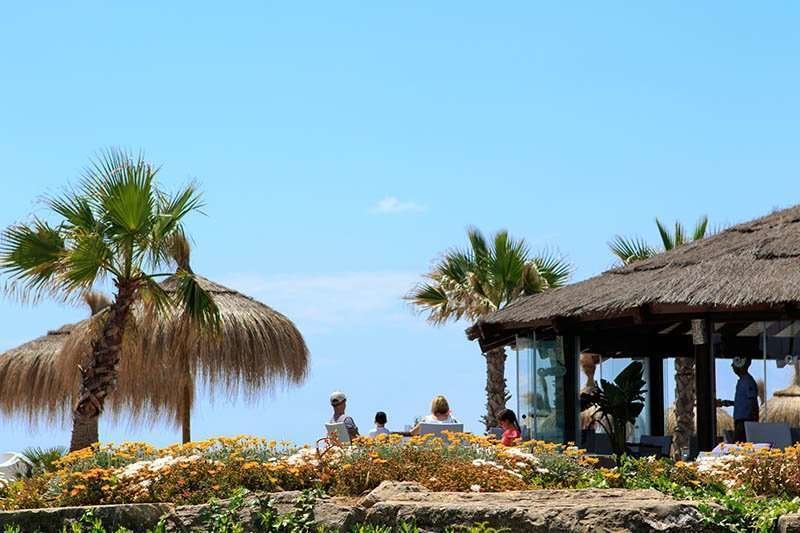Turismo: luces amarillas, por Carlos Rodríguez Braun

2018 fue bueno para la economía y el turismo, pero en su transcurso se fueron acentuando algunas amenazas que desembocaron en un cierto freno, que presumiblemente se prolongará en 2019. Esas luces amarillas, que combinan elementos económicos y políticos, explican la volatilidad y el mal año registrado en muchas bolsas.
Según estimaciones de La Caixa, nos enfrentamos a una suave desaceleración económica, y se espera un crecimiento para este año todavía por encima del 2 %. En cuanto al sector exterior, ha ido cayendo su superávit en 2018, aunque en los últimos meses esa caída se moderó por la bajada del petróleo, mientras que los resultados turísticos experimentaron finalmente un saldo mejor que el anticipado antes de la temporada estival —se recuperaron las pernoctaciones y el empleo en el turismo en la provincia de Cádiz, como informó nuestro periódico, algo que no sucedió en grado equivalente a escala nacional.
 Carlos Rodríguez Braun
Carlos Rodríguez BraunTres factores de incertidumbre internacional van a permanecer en 2019, condicionando las perspectivas de crecimiento tanto de la economía española como del turismo hacia nuestro país: el proteccionismo en el mundo, la subida de los tipos de interés, y las tensiones europeas, porque al Brexit hay que añadir otro escenario potencialmente conflictivo en política y economía: Italia.
En el ámbito interno de España tampoco faltan incertidumbres, como la política presupuestaria, la inestabilidad en Cataluña, y el horizonte electoral, que suele promover comportamientos irresponsables de las autoridades, en particular el aumento del gasto público.
En cuanto al sector turístico, según el BBVA “la recuperación de mercados competidores y un coste más elevado del transporte añaden presión sobre el turismo, que podría continuar desacelerándose en 2019”. Conviene subrayar que se estima que nuestra comunidad de Andalucía figure entre las de menor crecimiento de la actividad este año, junto con las otras que integran el área del Mediterráneo y las autonomías insulares.
El turismo, por tanto, acompaña a la economía en el avistamiento de señales de precaución. Es de esperar que ante estas luces amarillas las administraciones acompañen también, sobre todo en la labor crucial de no incrementar los costes, y no dañar aún más nuestra competitividad.
Tourism: yellow lights
Carlos Rodríguez Braun
2018 was good for the economy and tourism, but during it some threats become more notable which resulted in a certain slowdown, which will presumably extend to 2019. Those yellow lights, which combine economic and political elements, explain the volatility and the poor year recorded in many stock exchanges.
According to estimations by La Caixa, we are facing a mild economic slowdown, and growth is expected for this year that will still be over 2%. With regard to the external sector, its surplus gradually fell in 2018, although in recent months that drop was moderated by the drop in oil, while the tourism results ultimately experienced a better outcome than that expected before the summer season —the nights spent recovered along with tourism employment in the province of Cadiz, as reported in our newspaper, which didn´t happen to a similar extent at a national level.
 Turismo Sotogrande
Turismo SotograndeThree factors of international uncertainty will remain in 2019, conditioning the prospects of growth for both the Spanish economy and tourism to our country: protectionism around the world, a rise in interest rates, and European tension, because in addition to Brexit there is another potential conflictive scenario in terms of politics and the economy: Italy.
There is no lack of uncertainty within Spain itself, such as the budget policy, instability in Catalonia, the electoral horizon, which normally encourages irresponsible behaviour from authorities, especially an increase in public spending.
With regard to the tourist sector, according to BBV “the recovery of competitor markets and higher transport cost add pressure to tourism, which could continue to slow down in 2019”. It is worth highlighting that our community of Andalusia is estimated to be among the communities with the least growth in activity this year, along with the others that form the area of the Mediterranean and island autonomous communities.
Thus, tourism supports the economy in terms of spotting warning signs. It is hoped that, in the face of these yellow lights, administrations will also provide support, especially with the crucial work of not increasing costs, and not further damaging our competitiveness.
